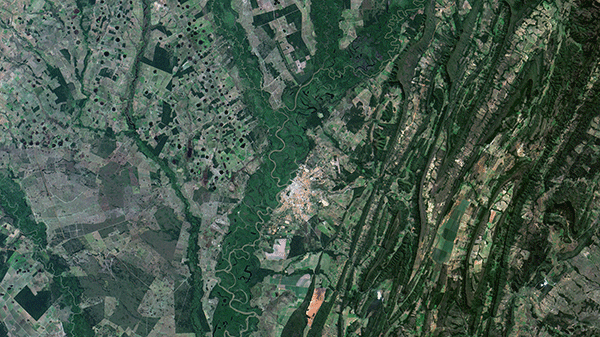Major food brands including Tesco, McDonald’s, and Nando’s are sourcing chicken from a company linked to deforestation in Brazil’s Cerrado region, a new investigation has found.
Tesco, Asda, Lidl, Nando’s, and McDonald’s were found to be sourcing chicken fed on Brazilian soybeans, supplied by US food giant Cargill.
The investigation, by Greenpeace’s journalism arm, Unearthed plus the Guardian, ITV News and the Bureau of Investigative Journalism, has gained widespread media attention including on ITV and the BBC, and brings to light the issue of indirect deforestation impact through animal feed, and the lack of transparency in long supply chains. For example, soybeans are imported from Brazil to the UK by Cargill, processed in a plant in Liverpool, before being distributed as chicken feed to farms supplying several major food chains.
Cargill, which Forbes has ranked as America’s second biggest private company, is estimated to ship more than 100,000 tonnes of soybeans to the UK every year from Brazil’s threatened Cerrado savannah, Unearthed said.
The Cerrado is a vast tropical ecosystem in Brazil that is home to an extraordinary percentage of the world’s plants and animal species.

Using satellite imagery from non-profit research firm Aidenvironment, the investigation found 800 sq km of deforestation on farms that supply Cargill in Brazil’s Cerrado and more than 12,000 recorded fires since 2015, a common way to clear land for agriculture.
In particular, footage showed huge fires on one farm owned by a Cargill supplier. Cargill told Unearthed it does not source from illegally deforested land and is aiming to build a deforestation-free soya supply chain.
The news builds on the growing awareness of the hidden cost in the long supply chains that provide meat to some of the UK’s largest retailers.
Indirect deforestation resulting from the production of soy has gained media attention this year. The WWF launched a campaign to show how consumers could be unknowingly part of it by eating chicken.
On a similar theme, Greenpeace’s animation on YouTube has gained over 1.7 million views in less than a month, featuring a cartoon jaguar fearing the loss of his habitat as a result of the destruction to make way for soybean cultivation used as feed for meat production.
Broadcaster and campaigner Chris Packham told Unearthed: “Most people would be incredulous when they think they’re buying a piece of chicken in Tesco’s which has been fed on a crop responsible for one of the largest wholesale tropical forest destructions in recent times.”















Soybeans are not just bad for the deforestation and destruction of the ancient ecosystems its mostly genetically modified crop. Both my sons are allergic to nuts and suffer from hay fever. Whenever they eat chocolate or biscuits which contain soy their allergy gets worse.
That’s interesting, do you know what it is with GM crops that flare their allergies up?
Allergic to big business exploitation of farmers?